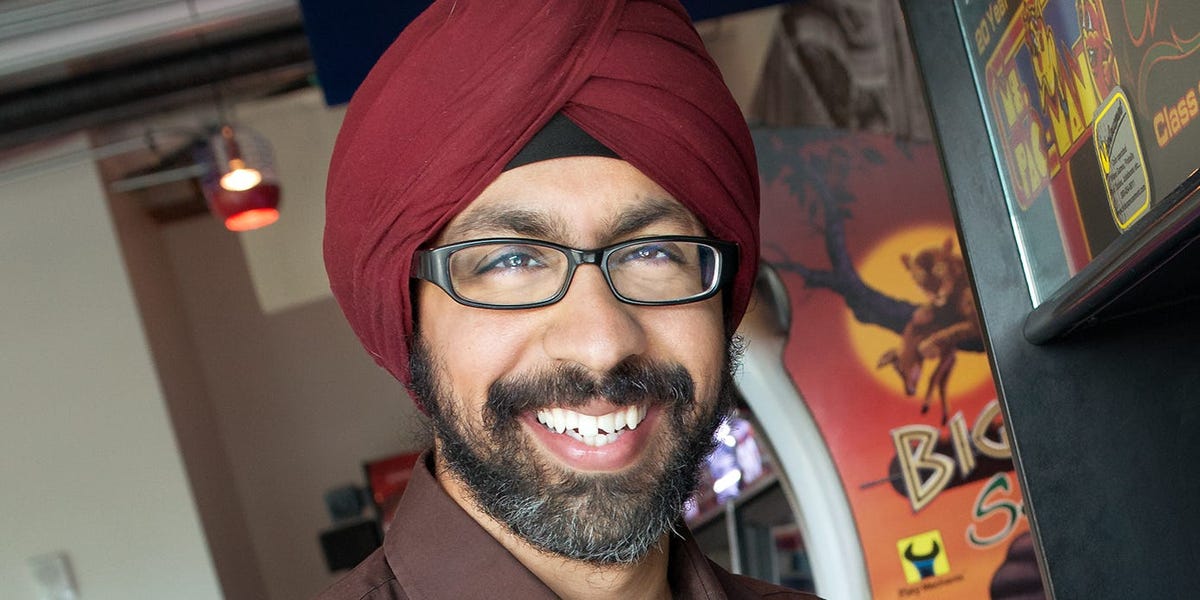
Try our newest merchandise
This as-told-to essay is predicated on a transcribed dialog with Punit Soni, the founding father of Suki AI, residing in Silicon Valley and Bengaluru, India. The next has been edited for size and readability.
Once I returned to India, in 2015 as Flipkart’s chief product officer, I skilled a profound sense of displacement.
I moved to the US to review for my MBA in 2005. I labored at Google and Motorola within the Bay Space till taking up a brand new function at Flipkart in Bengaluru.
Regardless of being born in India, my years in the US and Silicon Valley essentially altered my skilled and cultural identification. I spoke Hindi with an Indian-American accent and my skilled and social mannerisms felt overseas.
In some ways, I embodied the basic immigrant expertise of feeling like an outsider in each my homeland and adopted nation.
We moved right into a tropical Silicon Valley in India
Transferring to Bengaluru in 2015, I began my new place at Flipkart and had no set timeline of how lengthy I’d be again in India. I used to be excited for the job and to maneuver when the nation’s tech scene was rising quickly.
For my household’s relocation, we needed to search out the best group. My spouse had been to India earlier than, however my youngsters hadn’t.
We selected Adarsh Palms in North Bengaluru, a luxurious gated group. The neighhorhood had a predominantly expat inhabitants and provided a snug transition from California to India.
Residing in a tropical reproduction of Silicon Valley made our adaptation simpler, offering a well-known surroundings for our household’s social integration. Our youngsters attended worldwide colleges with college students from Sweden, Canada, and the UK.
Whereas handy, this life-style got here with a big downside. We had been primarily residing in a bubble, disconnected from native Indian society. Everybody socialized throughout the group. We received to know one another properly, however typically, it might really feel stifling.
This was a special surroundings than how I grew up, which was an open group with shared house complexes and children working up and down the areas.
I used to be excited to reconnect with previous associates, however I would come again to a sanitized model of India. I knew the language and tradition, but it surely nonetheless felt unfamiliar. Due to that, it took me some time settle in.
Once I migrated to the States, I used to be a younger immigrant scholar getting into with few obligations, whereas shifting to India in my maturity concerned fixed, dramatic adjustments and a household to take care of.
I believe we missed alternatives for extra genuine cultural immersion, notably for our youngsters. If we ever transfer again, I am going to need to reside in a extra native neighborhood.
I discovered the work tradition is extra intense in India
The work depth in India offered a stark distinction to Silicon Valley’s skilled surroundings. Throughout my time working in Bengaluru between 2015 and 2016, I found that work-life steadiness was primarily nonexistent within the Indian tech ecosystem.
Whereas I acknowledge sure development phases demand intense effort, the cultural method appeared to normalize steady work to the purpose of potential burnout. Staff persevered by exhausting circumstances, propelled by a rare dedication to skilled development.
Workplace dynamics in India had been extra advanced than I would skilled within the US with intricate political maneuvering. Indian colleagues would attempt to keep away from saying “no.” I believe this stemmed from a need to look cooperative and keep away from potential skilled friction. Whereas, in American workplaces, there’s extra direct communication.
On the constructive aspect, the depth of the folks I labored with in India was unmatched. The identical work ethic and drive to succeed can present in small pockets within the US, however because of the competitors in India, it was extra widespread.
Silicon Valley, compared, marketed a extra holistic work expertise. With facilities like on-campus actions, wellness applications, and break rooms, tech firms tried to create an surroundings that supported worker well-being. These advantages had been thrilling, however by no means essential for me.
Evaluating profession development in Silicon Valley to India is like evaluating apples to oranges: they every have their benefits and disadvantages.
One large distinction is that Silicon Valley has many tech firms and startup alternatives, whereas India’s ecosystem was nonetheless growing.
Understanding Indian and US work tradition is a bonus
I got here again to the States and launched my very own firm, Suki, in 2017, however my private connection stays deeply intertwined with each cultures.
I nonetheless have household in India and Suki has an workplace there, so I make a aware effort to go to and keep my bicultural identification. Familiarity with each cultures helps me form the tech ecosystems that I work in.
I reside in Silicon Valley, however I continuously return to India. I like having the ability to serve the nation I used to be born in, whereas nonetheless paying my dues and loving the nation that gave me my profession livelihood.
On the core, Silicon Valley and Indian tech cultures share a basic similarity of an intense need to excel, innovate, and push boundaries.

![[Windows 11 Pro]HP 15 15.6″ FHD Business Laptop Computer, Quad Core Intel i5-1135G7 (Beats i7-1065G7), 16GB RAM, 512GB PCIe SSD, Numeric Keypad, Wi-Fi 6, Bluetooth 4.2, Type-C, Webcam, HDMI, w/Battery](https://m.media-amazon.com/images/I/71LYTzK2A8L._AC_SL1500_.jpg)




![[UPDATED 2.0] Phone mount and holder compatible with Samsung Z Fold 2 3 4 5 6 Pixel Fold or Foldable phone | bicycle, treadmill, handlebar, elliptical, stroller, rail, handle, roundbar, golf cart](https://m.media-amazon.com/images/I/51CjGlidGRL._SL1023_.jpg)








